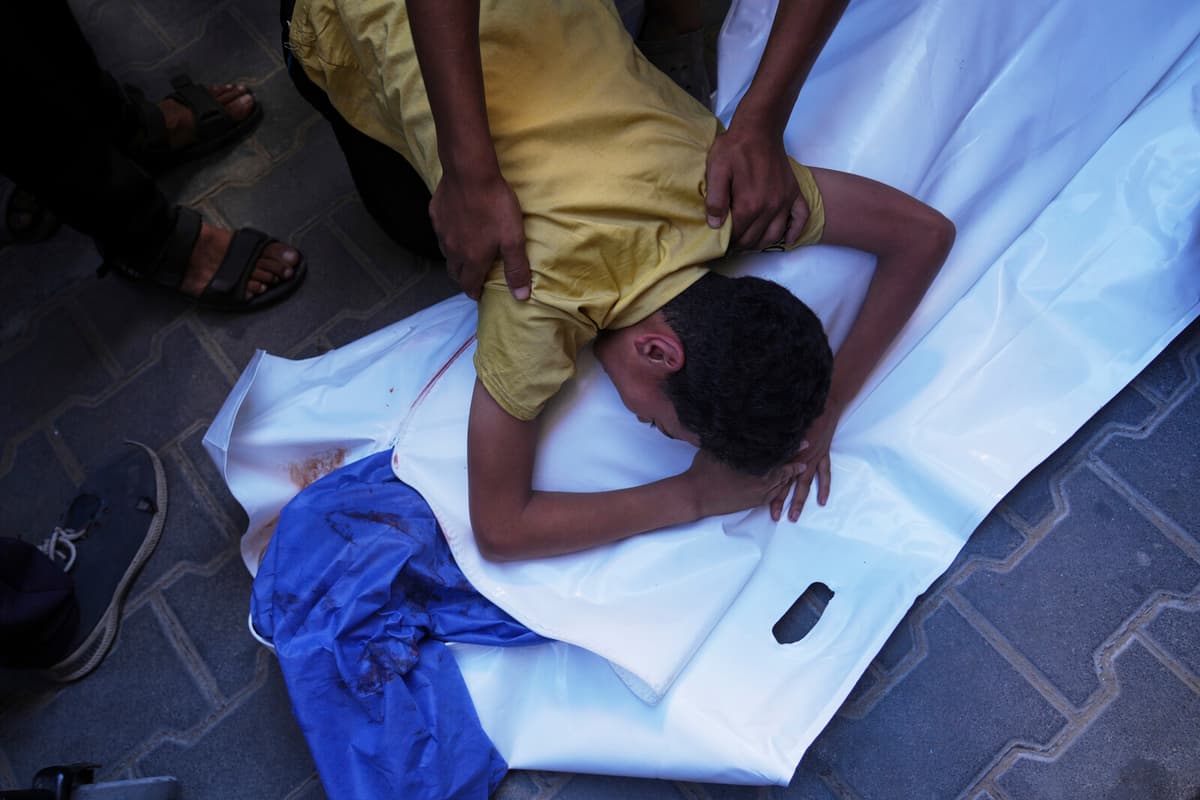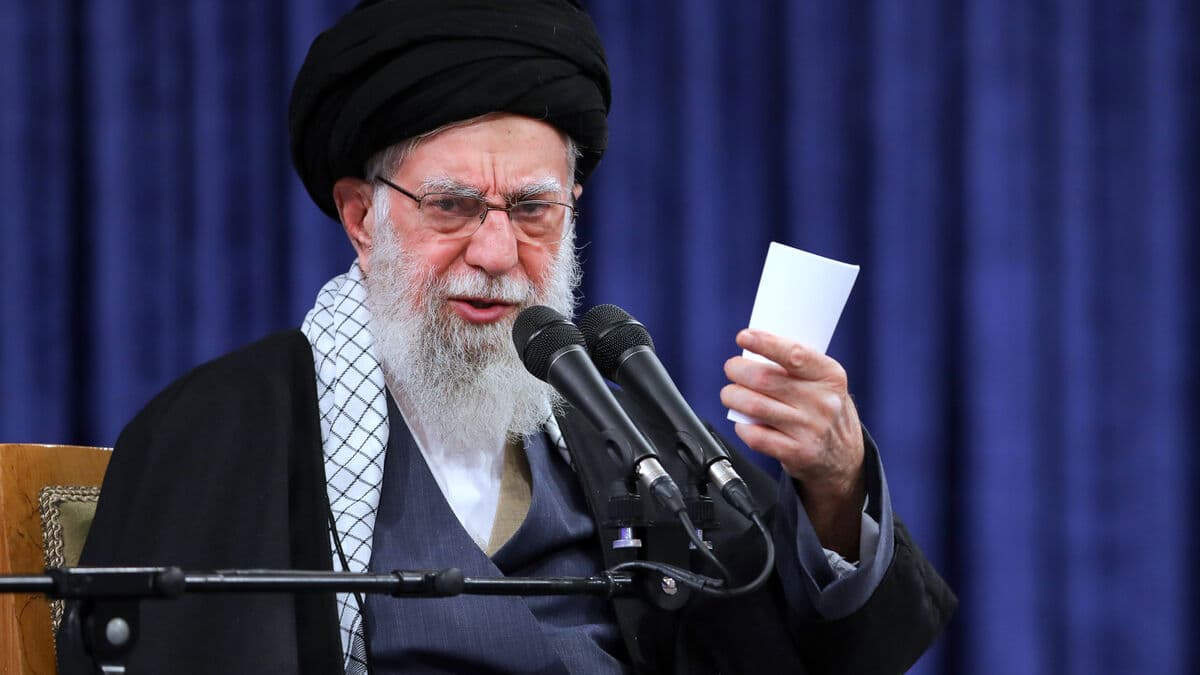Abdullah Ahmed was thirsty and the family needed water. On Sunday morning, the twelve-year-old, as usual, took the family's plastic jugs and headed towards the water distribution point in Nuseirat.
The children, Abdullah among them, stood in line with empty stomachs, empty jugs and thirsty mouths, says his father Mahmoud Abdul Rahman Ahmed to a Palestinian journalist working for British BBC.
Then the bomb was dropped. According to the father, the attack occurred without warning, just as the line had started to form.
Wanted to live in safety
Now he mourns a son who never got to fulfill any of his dreams.
They looked at reality with hope that it would change, with hope of becoming like the world's other children – playing, moving, traveling, eating, drinking and living in safety, he says.
The attack was bloody. In film clips verified by BBC, two men are seen carrying away small children shortly after the attack. On the ground, yellow water jugs are scattered. Nearby, several motionless people, both adults and children, are lying. Women are screaming while someone is pulling a man out of the rubble. Others are trying to help another man who is covered in blood.
In total, ten people were killed in the attack, six of them children, according to the al-Awda hospital in Nuseirat.
A school class per day
The children have been identified as Abdullah Ahmed, Badr al-Din Qaraman, Siraj Khaled Ibrahim, Ibrahim Ashraf Abu Urayban, Karam Ashraf al-Ghussein and Lana Ashraf al-Ghussein, according to BBC. They are numbers in an increasingly dark statistic – since the outbreak of war, an average of a whole school class has been killed every day in Gaza, according to the UN.
Israel claims to have hit the water line due to a "technical error". Mahmoud Abdul Rahman Ahmed dismisses the claim. He believes that Israel wanted to convey a message: "We do not allow the people to drink the water they yearn for."
The UN has repeatedly warned that the water shortage is getting worse in the Gaza Strip. Israel's blockade means that fuel, as well as spare parts for desalination, pumping and sanitation facilities, are scarce.






